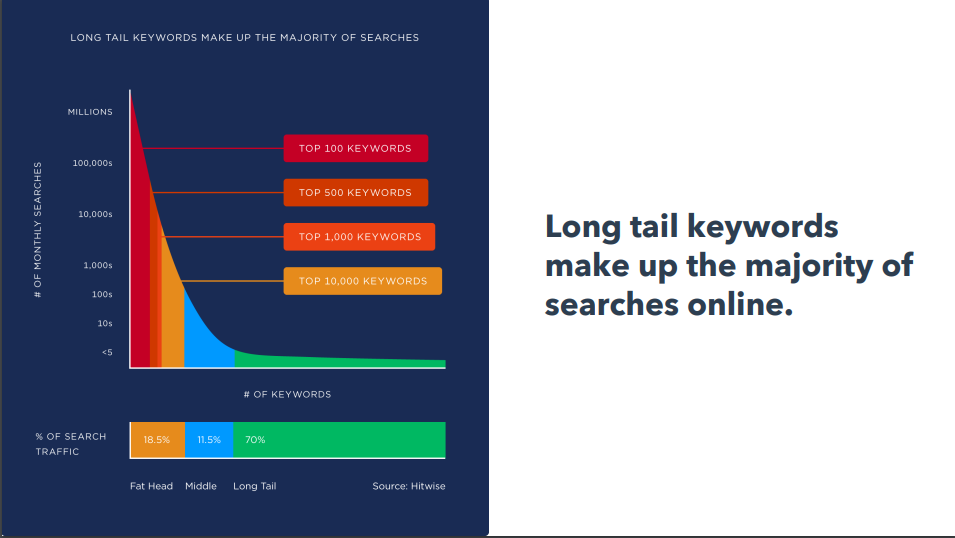The research of keywords is the driving power behind SEO. Keyword research is the guiding force behind SEO efforts.
It can help you understand your intended audience, giving you a better understanding of what they’re really looking for. If
Nobody is searching for the information you’re writing about, so your website won’t get any visitors from Google. This is
where keyword research plays a role.
What are the keywords?
The phrases and words that users type into search engines.
What is the keyword research?
The process of searching and analyzing the search terms people type into search engines for the purpose of using the information for a specific goal. Keyword research can help you answer questions such as:
- What are people looking for?
- The number of users looking for it?
- In what format will they prefer to receive their information?
- How difficult is it to be able to rank for this search term?
In the realm that of research on keywords, you will find a variety of types of keywords. They are typically called under different names, however they all mean the exact concept. Let’s call them head words or body keywords. They can also be referred to as longer tail keywords.
What are head-related terms?
Head keywords (or the fat head) are generally single-word terms with a high volume of searches and competitiveness (e.g.
marketing, insurance).
The term “search volume” refers to the amount of times that the same phrase is searched for in a particular search engine every month.
The phrase is used often in the SEO field, especially when it is used in the context of keyword research.
What are the keywords for body?
Keywords for the body (or the chunky middle) are phrases of 2-3 words with a decent volume of searches however, they are slightly more specific
more than head terms and less than head terms, and with less (e.g. marketing automation or automobile insurance).
What are long tail keywords?

Specific terms that don’t receive more search results, but are often less crowded.
Long tail keywords account for the majority of online searches.
Long tail does not simply indicate that the word is long.
It’s a common mistake. “Long tail” is actually referring to the curve’s long tail, and not to the length of
The search query contains words. Search queries that contain a variety of variations, all searching for relevant information, are often referred to as having a lengthy tail. Because they have a lower search volume, these terms tend to be simpler to rank than high-volume head phrases.
A good example of the long tail keyword:
- “How do I apply sunscreen”
- “How often do you apply sunscreen”
- “When to apply sunscreen”
- “Best sunscreen ingredients”
- “Best natural sunscreen for children.”
Your strategy for keywords should include the mix of body and long tail keywords, governed through head words. If a term that is a head one has a significant search volume, it is likely that the body and long tail keywords beneath it will be able to generate enough traffic to warrant creating content for. The keywords you choose to rank for are less competitive to rank for, and in the event that you get them to rank, they will can be a significant amount of traffic you’d get if you had ranked on the same head keyword. Concentrate on building relevancy to the topic. Keywords will tell you what subjects are popular with people. Your aim is to create an archive of useful articles on topics that are relevant to your company. The exact matching of keywords isn’t as essential as it was in the past. It’s more important to establish your knowledge of relevant subjects by creating a lot of useful, high-quality information.





















